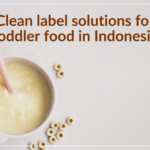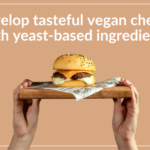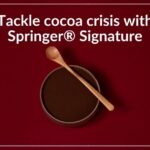Naturalness is one of the major trends in the food sector: consumers want better food quality. They are increasingly seeking out natural foods as a measure of reassurance: 31% of the European consumers, 29% of North American consumers and 43% of Asian consumers consider naturalness as an important purchase criteria[1].
Consequently, more and more food and beverage products are launched around the world with “all natural”, “100% natural”, “from natural origin” … claims. This trend is multifactorial and among the strongest claims are organic, vegan and non-GMO.
Biospringer can help food manufacturers develop natural and healthier products with yeast extract, its natural solution.
What is the naturalness?
For most people, naturalness is synonym of quality, safety, confidence and reliability. What is coming from nature is good for our health and environment-friendly. From a regulatory point of view, naturalness does not have an official definition nor a clear global regulatory framework. The perceived definition of natural depends mostly on local legislations and on individual opinions. This could be confusing for consumers, especially since the naturalness of a product has several variables depending on the geographical zone, the various and evolving consumers sensibilities, the product origin and its production process.
Naturalness: consumers’ expectations
From consumers’ expectations, naturalness is an association of multiple attributes divided into 3 categories:
- How raw material is grown: For many consumers, “organic” or “locally produced” are significant characteristics. Indeed, the importance of the “organically grown” and “certified organic” attributes as purchase criteria has grown by 16% between 2013 and 2016[2] .
- How the product is produced: Consumers hunt down anything suspicious and give priority to “minimally processed” foods. Overall, they are attracted to reassuring claims. This explains the substantial growth from 2013 to 2016 of purchasing criteria such as “without artificial flavoring” (13%), “no artificial coloring” (16%), “preservative free” (17%) and “no artificial ingredients” (29%)2.
- How the final product is: Is it healthy? Environment-friendly? Tasty? Fresh? Clean label? Clean labeling is about transparency and easy to understand product labels. Naturalness perfectly fits with the growing need for consumer reassurance: the more natural a product is, the more it fits with a clean label approach.
Organic and vegan markets are supporting the worldwide natural ingredient wave
For consumers, “naturalness” and “organic” are closely linked. The global organic food and beverage market is expected to reach $323.09 Bn by 2024. It was estimated to be worth $124.76 Bn in 2017[3]. The European and North American markets are leading the way and the Asian market goes along with this trend development (mostly in Japan, China, South Korea and Kazakhstan[4]).
Vegan and vegetarian play a major role in the progression of naturalness, driven by their environmental and animal welfare considerations. Globally, vegan food and drink launches grew by 175% between 2013 and 2017. Germany, UK and USA are the countries with the highest share of vegan product launches between 2017 and 2018 (15%, 14% and 11% respectively) whereas other regions are around 4%[5].
Biospringer’s yeast extracts are natural food ingredients
Biospringer offers a wide range of natural origin food ingredients that fits perfectly in the naturalness trend. Yeast extract is a fermentation-based ingredient coming from yeast. Yeast is a well known food ingredient coming from the fungus family used for centuries to make bread, wine or beer.
Biospringer’s yeast-based ingredients are animal-free, minimally processed, locally produced and GMO-free. They bring taste naturally to food and drink products, including vegan and vegetarian ones. An organic yeast product range is also available.
Biospringer is a key player and global producer of yeast extracts. It relies on Lesaffre’s 165 years of expertise and know-how in yeasts and fermentation. Supported by a team of technologists and researchers, the Culinary Center network is here to develop customized yeast-based ingredients and initiate new recipe development relating to worldwide customer’s needs.
With its numerous qualities, Biospringer’s yeast extract is a great differentiating solution for flavorful and nature-based products.
PD, Germany continues to dominate global vegan new product development, 2018
To know more,
[1] Nielsen, We are what we eat: healthy eating trends around the world, January 2015
[2] Nutrikéo, Carnet des Tendances Nutrition-Santé 2018 – 2020, 2018
[3] Zion Market Research, Organic Food and Beverages Market by Product type, 2017
[4] Agence Bio, Les carnets de l’Agence Bio: La Bio dans le monde, édition 2017
[5] MINTEL GN









